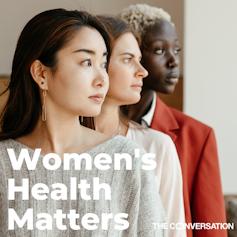Breastfeeding is a cornerstone of early childhood nutrition and development. However, taking prescription medicines can reduce breastfeeding rates because parents who take such medications often face a lack of information about their potential impact on babies or how medicines affect lactation.
To better understand the effects of medicines on breastfeeding, we conducted a systematic review of the available information. We scoured electronic databases for research on the impact of prescription medicines on breastfeeding. These studies examined how medicines affected milk composition, milk production and the health of breastfed infants.
We found a limited number of high-quality studies, with only ten established databases reporting on breastfeeding, medicines and infant outcomes together. And, unfortunately, none of these studies covered educational outcomes, making it difficult to assess potential long-term risks, harms and benefits.
Our research shows that more data collection is needed. And our work and other research highlights there is a need for additional support to help breastfeeding mothers overcome physical barriers, including delayed milk production and anxiety about the use of prescription medicine.

This article is part of Women’s Health Matters, a series about the health and wellbeing of women and girls around the world. From menopause to miscarriage, pleasure to pain the articles in this series will delve into the full spectrum of women’s health issues to provide valuable information, insights and resources for women of all ages.
You may be interested in:
Five old contraception methods that show why the pill was a medical breakthrough
The orgasm gap and why women climax less than men
Safety
Most medicines are safe for most breastfed babies, while serious harm to infants is rare. In most cases, the benefits of breastfeeding outweigh the risks of harms associated with medicine use. Still, this can be a complex issue and it’s essential to weigh the benefits and risks carefully.
There are some medicines that require extra checks on infants and their ability to breastfeed. For example, infants whose mothers use antibiotics such as amoxicillin and erythromycin (which are known to be safe to use during breastfeeding), should be checked for oral thrush and diarrhoea, as prompt treatment is important.
The British National Formulary (BNF) offers advice on the prescribing and administration of medicines. Infants of mothers taking certain medicines, such as those for epilepsy, mental health conditions, sedatives, or opioids, should be monitored for signs of sedation, sleepiness, poor feeding, weight loss and irritability.
Health professionals should also assess how effectively the baby is feeding by observing suckling and attachment to the breast. This is important because these types of medicines can interfere with an infant’s ability to feed and receive adequate nutrition.
The BNF expresses reservations regarding prescribing some sedative medicines that pass into breastmilk, where there is a risk of infant sedation, as with benzodiazepines (such as diazepam), and some anti-seizure medicines such as phenobarbital or primidone.
It recommends avoiding certain medicines during breastfeeding altogether, including some antipsychotics, such as olanzapine and clozapine, and the antidepressants escitalopram and fluoxetine. But other antidepressants, such as citalopram, may be used with caution. Most antipsychotic injections should be avoided during breastfeeding too, as should fingolimod which is used to treat multiple sclerosis.
Breastfeeding while using many medicines for serious illness, such as cancer, should be discussed with medical professionals. There may be little or no information from human studies, and there may be too little information to guarantee safety. Examples include many monoclonal antibodies used to treat cancer, and the immunosuppressant, mycophenolate mofetil, which is used to prevent the rejection of kidney, heart or liver transplants.
Advice
Mothers taking medicines should not blame themselves for being hesitant towards breastfeeding. Medical advice should be sought before birth. And families should not feel compelled to choose between breastfeeding and continuing with prescription medicines.
It’s essential for doctors, pharmacists and other health professionals to consult reliable information sources, including LactMed and E-lactancia, or contact the Drugs in Breastmilk helpline.
To help families who need prescription medicines, it is crucial for public health teams controlling the collection of routine healthcare data to treat data collection on medicine use during and after pregnancy and during labour as a priority. This would allow research into the benefits and harms of medicine use before and during breastfeeding.
Such information would help parents make informed decisions regarding their medical treatment, breastfeeding and monitoring infants. It would also help minimise parental anxiety and potentially harmful false dilemmas.

